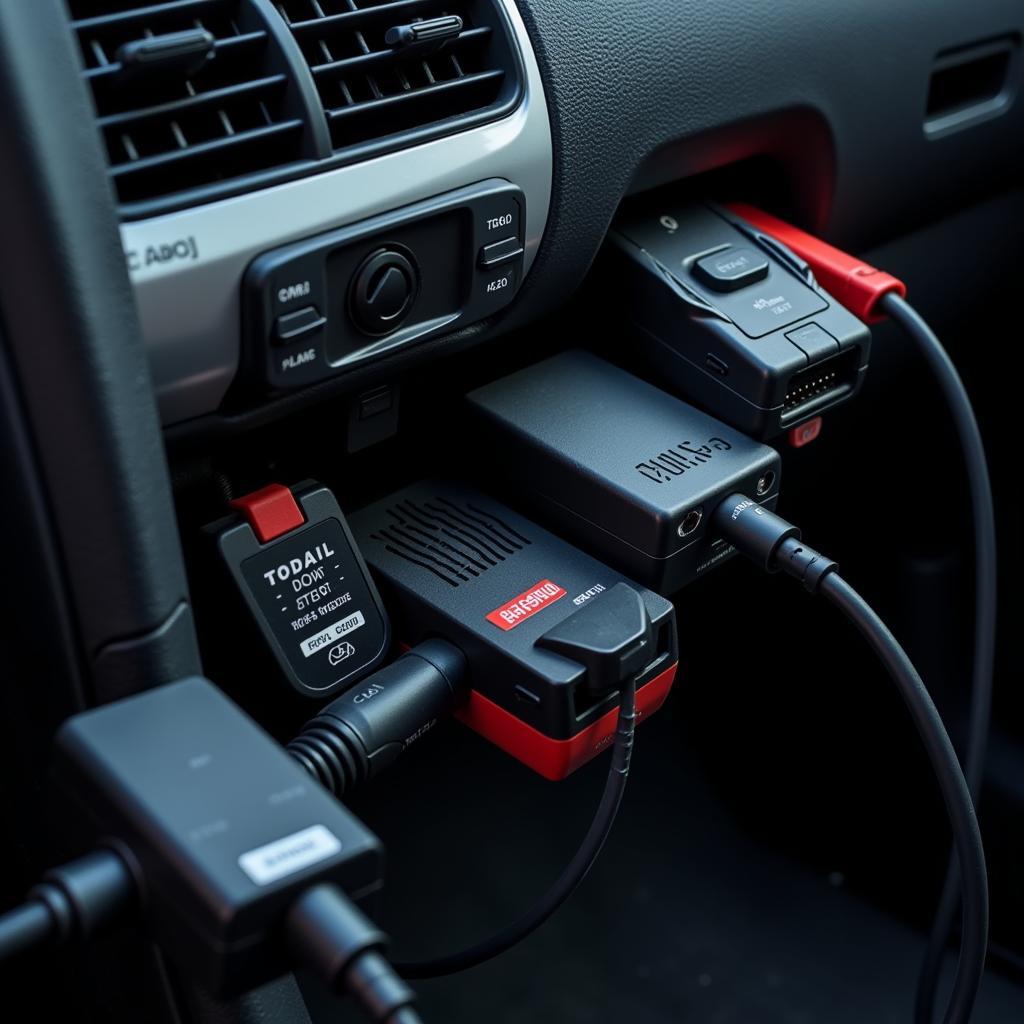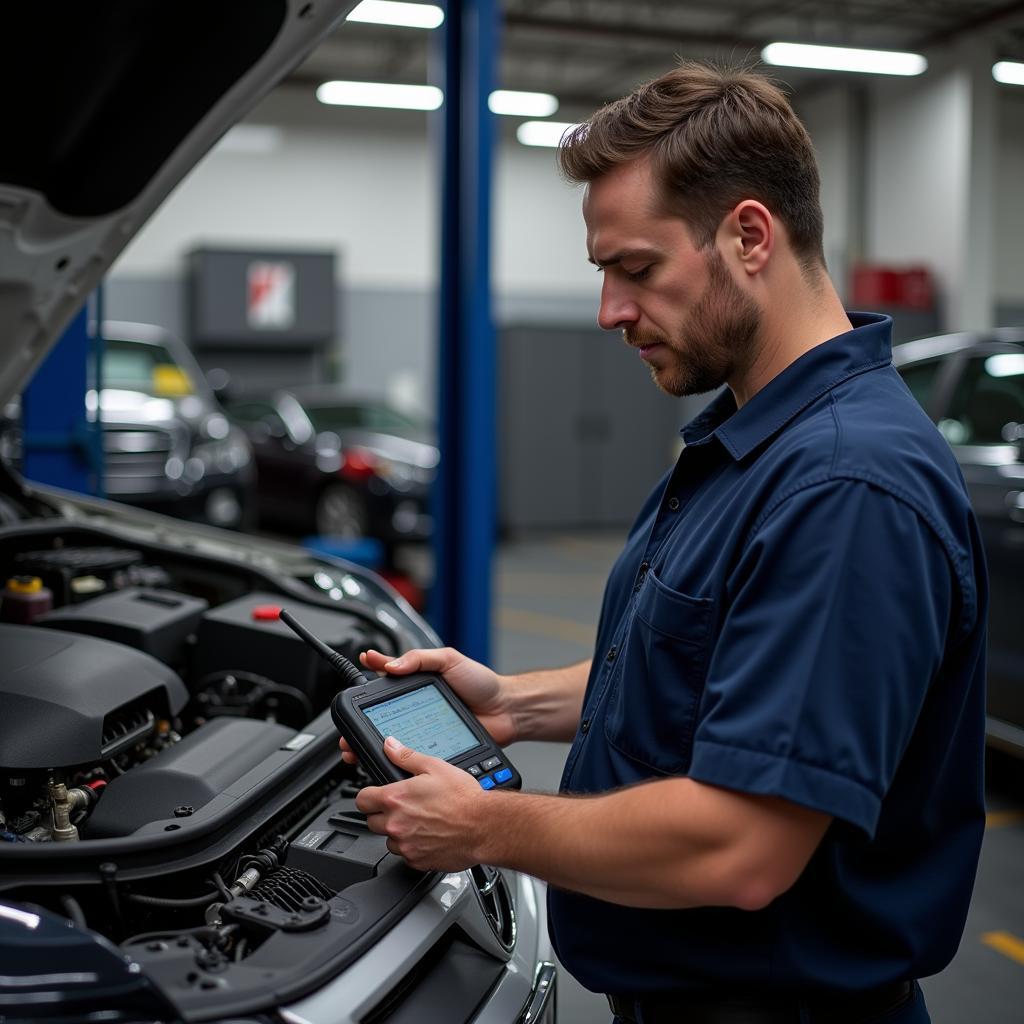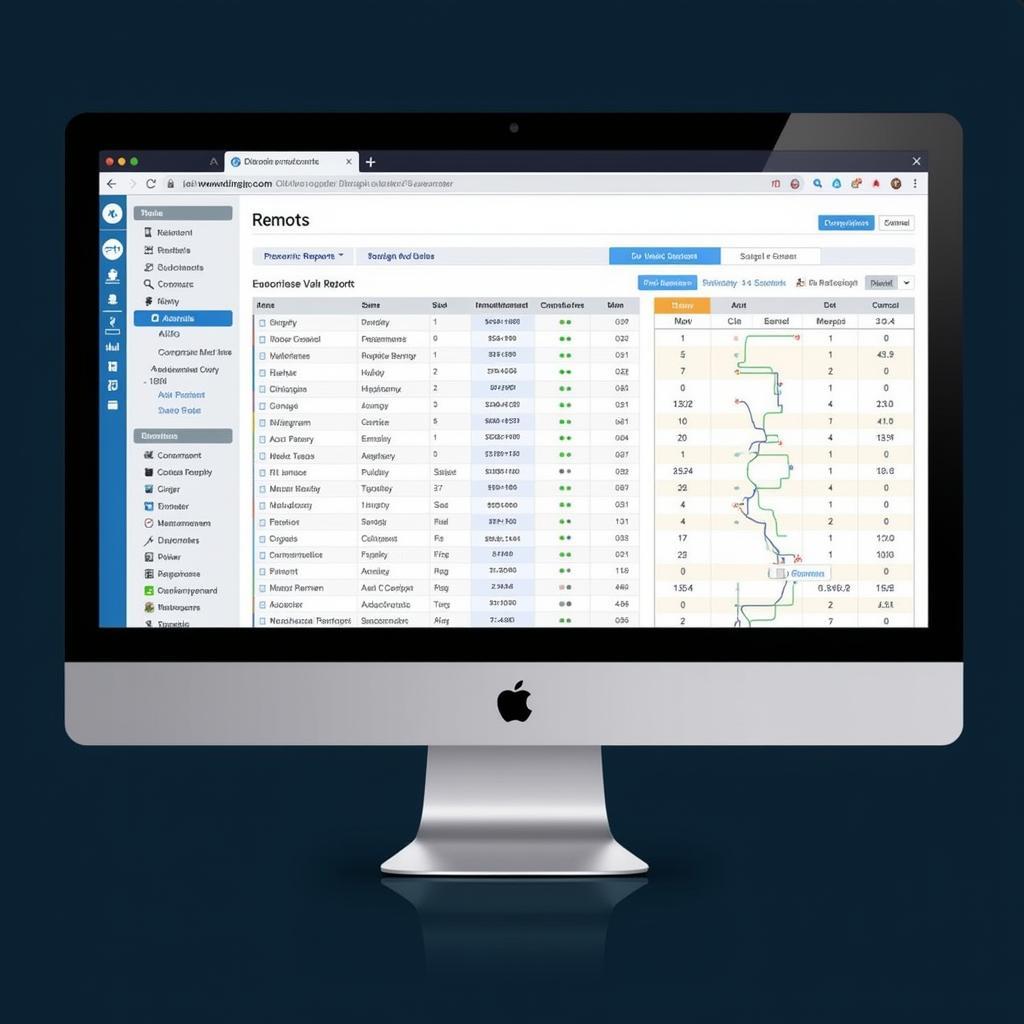Getting hit with an unexpected “check engine” light can be stressful. What does it mean? How serious is it? How much will it cost to fix? This is where Fixed Car Diagnostics come into play. Gone are the days of relying solely on a mechanic’s intuition. Modern vehicles rely heavily on intricate computer systems, and understanding these systems is crucial to pinpoint and address automotive issues accurately.
 Car Diagnostic Tools
Car Diagnostic Tools
What Does “Fixed” in Car Diagnostics Really Mean?
When we talk about “fixed” in the context of car diagnostics, we’re not just talking about slapping a band-aid on a problem. It means identifying the root cause of an issue using advanced diagnostic tools and software, then implementing the correct repair strategy. This ensures the problem is genuinely resolved and not just temporarily masked.
The Power of Accurate Diagnostics: Why It Matters
A proper fixed car diagnostic procedure offers a multitude of benefits for car owners:
- Early Detection: Identifying minor problems before they snowball into major (and expensive!) repairs.
- Cost Savings: No more throwing money at unnecessary parts replacements. Accurate diagnostics mean you only fix what’s truly broken.
- Safety First: Certain car problems can compromise safety. Diagnostics help ensure your vehicle is in optimal condition for the road.
- Peace of Mind: Knowing that any issues are addressed promptly and effectively provides invaluable peace of mind.
Unraveling the Diagnostic Process
Let’s demystify what happens during a fixed car diagnostic session:
- Connecting the Diagnostic Tool: A specialized scanner is connected to your vehicle’s OBD-II port, which acts as a gateway to your car’s computer system.
- Reading Error Codes: The scanner retrieves Diagnostic Trouble Codes (DTCs) stored in your car’s computer, which act like clues to what’s going wrong.
- Analyzing Data Streams: Beyond codes, the scanner taps into real-time data from various sensors, allowing mechanics to analyze engine performance, emissions, and other vital parameters.
- Expert Interpretation: Experienced technicians don’t just read codes; they interpret them within the context of your car’s make, model, and symptoms to form a complete picture.
 Mechanic Performing Car Diagnostics
Mechanic Performing Car Diagnostics
Common Issues Fixed Through Car Diagnostics
Fixed car diagnostics can pinpoint a wide array of issues, including:
- Engine Problems: Misfires, loss of power, rough idling, and unusual noises.
- Transmission Issues: Slipping gears, harsh shifting, and transmission fluid leaks.
- Brake System Faults: ABS problems, brake warning lights, and spongy brake pedals.
- Electrical Malfunctions: Issues with lights, windows, battery, and other electrical components.
- Emissions Control: Problems with the catalytic converter, oxygen sensors, and other emissions-related components.
DIY vs. Professional Diagnostics: What’s Right for You?
While affordable OBD-II scanners are available for car owners, keep in mind that fixed car diagnostics involve more than just reading codes. It requires extensive knowledge of automotive systems, experience interpreting data, and the ability to perform accurate repairs.
Here’s a quick breakdown:
DIY Diagnostics:
- Best for: Simple code reading, understanding basic issues, and monitoring vehicle health.
- Consider if: You have basic car knowledge and are comfortable with basic troubleshooting.
Professional Diagnostics:
- Best for: Complex problems, accurate diagnosis, and effective repairs.
- Consider if: You’re experiencing persistent car trouble, suspect a serious issue, or lack the time or expertise for DIY.
 Car Diagnostic Report
Car Diagnostic Report
Choosing the Right Diagnostic Service: Factors to Consider
When seeking professional fixed car diagnostics, keep these factors in mind:
- Reputation and Experience: Look for reputable mechanics or workshops known for their diagnostic expertise.
- Specialized Equipment: Ensure they use advanced diagnostic tools and software suited for your car’s make and model.
- Transparent Communication: Choose a service provider that clearly explains the diagnostic process, findings, and repair recommendations.
Don’t Ignore the Warning Signs: The Importance of Regular Check-ups
Just like regular health checkups are crucial for humans, routine fixed car diagnostics are essential for maintaining your vehicle’s health and longevity. Consider scheduling diagnostic checks:
- Annually: As part of your vehicle’s routine maintenance.
- When Buying a Used Car: To uncover potential hidden problems.
- If You Notice Unusual Symptoms: Don’t delay getting strange noises, warning lights, or performance issues checked out.
In Conclusion: Fixed Car Diagnostics – Your Path to a Healthier Car
Investing in fixed car diagnostics is an investment in the health, safety, and longevity of your vehicle. Whether you choose to DIY or consult a professional, understanding the importance of diagnostics empowers you to make informed decisions about your car’s care.

Leave a Reply